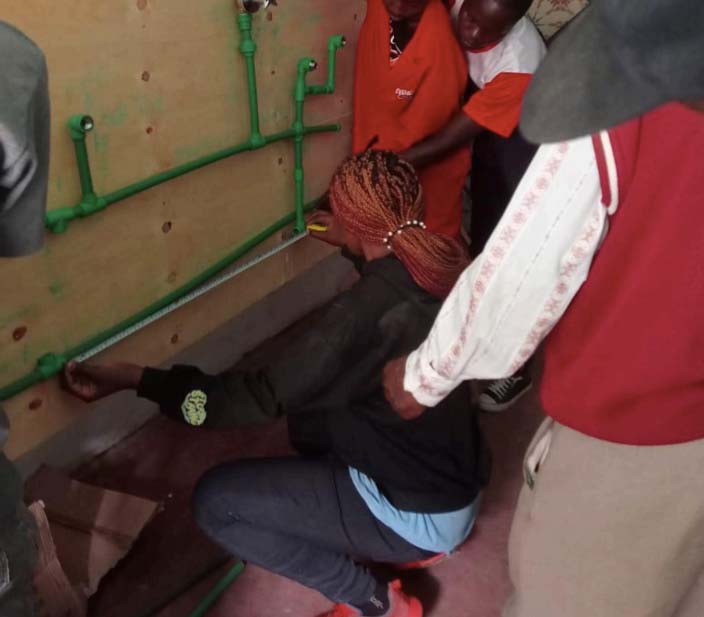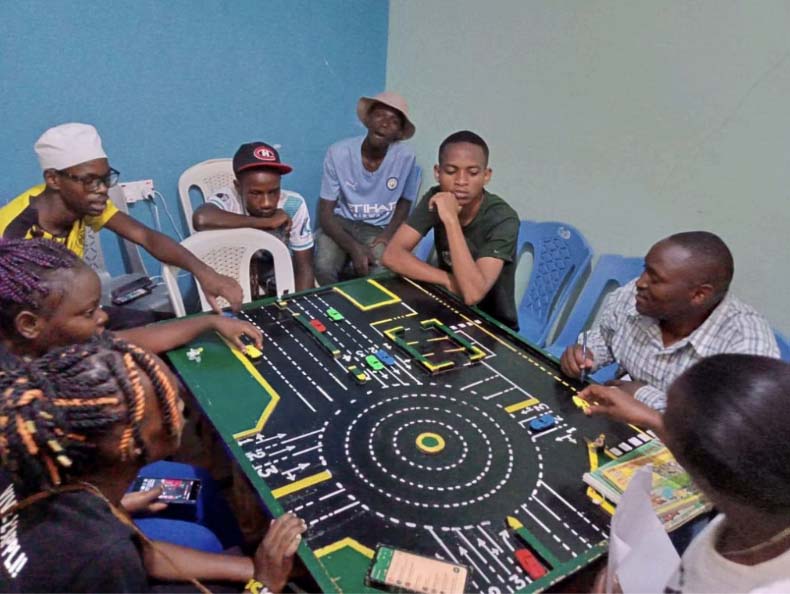Many of you know that, in addition to our work with primary schools in the Nairobi slums, we partner with a group of pastors in the Kiandutu slum in Thika, just outside Nairobi. These faithful pastors and their churches are working with the hundreds of children who attend four severely deficient public schools there.
Eight years ago, when we began this partnership, we offered a Saturday program of a hot meal, sports, and learning. Every week, about 400 very needy children showed up for this program, which included the novelty of a running club with organized exercises, competition and even running shoes and uniforms. The urgency of the children’s need and their excitement in participating was very powerful to witness.
Over time, the pastors felt compelled to do more for these children. With the help of KCEF, a Wednesday feeding program was added, computer instruction was offered in the four public schools, scholarship assistance was provided, and an “outward bound” style Rites of Passage program was created for eighth graders. All of these efforts have been a huge success, and there are now 800-900 hungry children coming for the urgently needed meals served on Wednesdays and Saturdays.
As successful as these efforts have been, another innovation might well prove to have the greatest long-term impact on Kiandutu. In 2022, the pastors came to us with a concern for the large number of 18-25 year olds in the slum who have little education, no marketable skills, and virtually no hope for their futures. The unemployment rate for this group of young men and women is over 70%! Some have finished high school but most have not, and they desperately need a way out of a dead end life of poverty.
When the pastors proposed vocational training programs in two fields—driving and computers—KCEF agreed to fund a trial program with no assurance that it would really “work.” We needn’t have worried. The demand from young men and women was immediate and strong. In 2023, 48 young people took the pilot courses. One hundred percent of them graduated, and, within six months, 66% had jobs related to their programs in computers or transportation.
Based on these results, the pastors proposed adding vocational training in electrical work and plumbing. KCEF again provided funds needed to expand the course offerings. Now that we are at the end of the second cohort of 2024, every single class has been full and 240 students are on track to complete them. For the first time in their lives, these graduates will have skills qualifying them for employment. To assist them in their job searches, we have hired someone to help them navigate that process.
So far, this effort has had amazing success. Classes in all four areas—computers, driving, plumbing and electrical work—are over-subscribed for the third term of 2024. In that third term, we will be adding a new course in auto mechanics.
It is so gratifying to see the graduation ceremonies held after each term and hear the stories and enthusiasm of the students. Once stuck in a pattern of poverty and despair, they now have an opportunity to support themselves and their families and give back to their community.
Thrilled with the results so far, we expect to see continued and growing demand for these vocational courses. Perhaps you have seen news of the recent street protests in Kenya, where much of the discontent is based on the lack of opportunity for young people. The programs in Kiandutu slum are a small but shining example of what can be done to meet that need.
Many of you have helped make these new initiatives possible, and we are very grateful for your assistance. Perhaps you will now help us find the additional $15,000 needed to fund the new course in auto mechanics. If you are able to help us, you will again be playing a direct role in transforming young lives.


